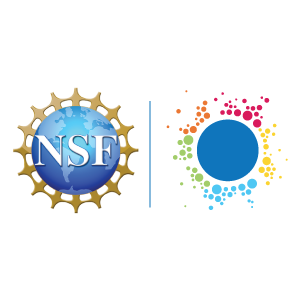By Simone Soso, NSF INCLUDES Coordination Hub
Collaborative Strategies for Inclusive Change, a new podcast series from the NSF INCLUDES Coordination Hub, highlights projects and partnerships that are shifting inequitable systems to improve accessibility and inclusivity in STEM education and careers.

Hosted by the Hub’s co-PI, Dr. Ivory Toldson, the podcast features interviews with leaders from NSF INCLUDES-funded projects and other scholars and practitioners committed to the NSF INCLUDES vision of a STEM enterprise that reflects the diversity of the nation. Each episode will bring listeners practical ideas for creating innovative collaborations to address issues of inclusivity in STEM.
In the first episode Dr. Toldson interviews Dr. Karen Marrongelle, Assistant Director of the National Science Foundation (NSF)’s Directorate for Education and Human Resources (EHR). They discuss collective impact strategies that have been successful in broadening participation in STEM education and careers.
As the head of NSF’s EHR directorate, Dr. Marrongelle brings her expertise in research that enhances learning and teaching to achieve excellence in STEM education to this episode. Dr. Marrongelle is a mathematics educator specializing in collaborative learning in undergraduate mathematics education, and her career as a leader in the research community has been marked by a deep commitment to diversity, equity, and inclusion.
Prior to joining NSF, Dr. Marrongelle was Dean of the College of Liberal Arts and Sciences at Portland State University and professor of Mathematics and Statistics. As an administrator, she focused on understanding the causes of disparities in educational opportunities and establishing strategic visions for addressing those issues. In addition to her role as dean, since 2001 she served as a faculty member in the Department of Mathematics and Statistics. She is the co-author of “Having Success with NSF: A Practical Guide,” and is one of the three founding editors-in-chief of the International Journal of Research in Undergraduate Mathematics Education.
EHR funds the majority of NSF’s research and development in science and engineering education. Its goals include preparing the next generation of U.S. STEM professionals, developing a robust research community that will support excellence in STEM education, and broadening STEM participation to close achievement gaps. The directorate works to accomplish these goals by identifying ways to prepare and support teachers and faculty, investing in research in learning, and ensuring that the STEM community is broadly representative of the U.S. population

